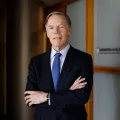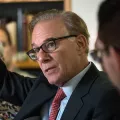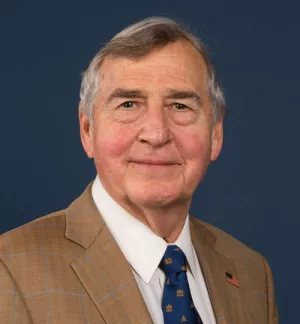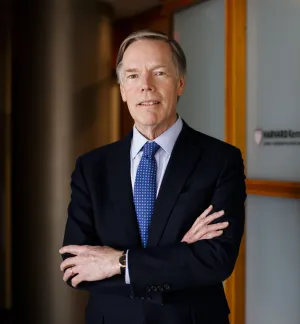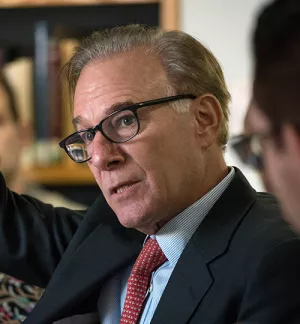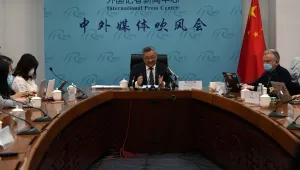Takeaways from the Harvard Kennedy School IDEASpHERE panel "Challenges to U.S. Global Leadership" with Graham Allison, Nicholas Burns, David Gergen, David Ignatius, and Meghan O’Sullivan.
Sampling of Notable Thoughts
"Clearly, the defining challenge for the rest of our lives will be the rise of China and the Chinese-U.S. relationship." - Graham Allison
"And suddenly...we've moved from a position where energy was our Achilles heel to a position where actually we're now able to talk about energy being a real strength." - Meghan O'Sullivan
"I am struck by the fact that...the most effective, successful leader in the world in the last year has been Xi Jinping. - David Ignatius
WATCH: Recording of Full Session
Summary
David Ignatius, Washington Post columnist and Belfer Center senior fellow, led off by saying that he was sympathetic to President Obama considering the foreign policy challenges he has faced, but suggested that under his leadership the U.S. has suffered reputational damage.
Belfer Center Director Graham Allison highlighted China’s phenomenal rise and warned of the danger of U.S.-China relations falling into the Thucydides trap, when tensions between a rising power and an existing power lead to conflict.
Meghan O’Sullivan, director of the Belfer Center's Geopolitics of Energy Project, shared a more positive perspective, noting that in the last seven years technological advances in the oil and gas industries have dramatically changed America’s energy outlook. Whereas strategists once considered energy an Achilles heel for America, O’Sullivan said, energy is now seen as a source of strategic strength.
David Gergen, co-director of Harvard Kennedy School's Center for Public Leadership, tied together foreign policy and domestic politics. Presidents traditionally focus on foreign policy in the last three years of their second term, Gergen said, but President Obama is at risk of becoming a lame-duck President.
Nicholas Burns, director of the Belfer Center's Future of Diplomacy Project, moderated the panel and commented that U.S. diplomatic efforts are buoyed by the threat of U.S. military might.
"Challenges to U.S. Global Leadership." Event Report, Discussion, IDEASpHERE Celebration, Harvard Kennedy School, May 16, 2014.


